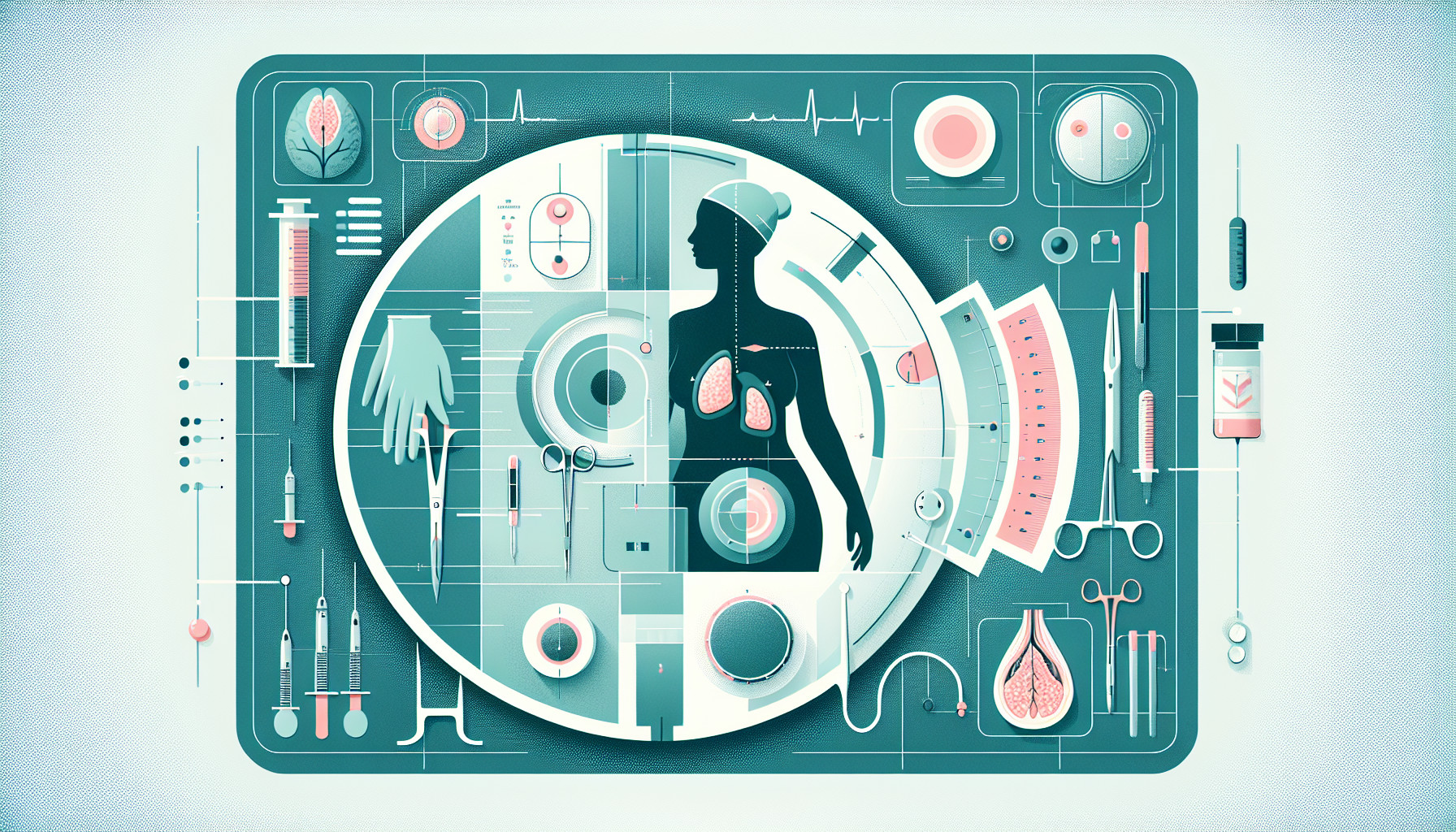Our Summary
The research paper discusses the rise in mastectomy rates (surgical removal of one or both breasts) for early-stage breast cancer treatment, despite the fact that breast conservation therapy (BCT) has shown better survival rates and control of the disease. The authors express concern over this trend and emphasize the need to educate both medical practitioners and patients about the benefits of BCT over mastectomy. The paper also proposes a format to present this data effectively for patient counseling, with the aim of reducing the preference for mastectomy.
FAQs
- Why is there a rise in mastectomy rates despite the fact that breast conservation therapy has shown better survival rates?
- How can medical practitioners and patients be better educated about the benefits of breast conservation therapy over mastectomy?
- What is the proposed format to effectively present data for patient counseling and how can it help reduce the preference for mastectomy?
Doctor’s Tip
One helpful tip a doctor might tell a patient about mastectomy is to consider all available treatment options, including breast conservation therapy (BCT), before making a decision. It’s important to have a thorough discussion with your healthcare team about the risks and benefits of each option to make an informed choice that is best for your individual situation.
Suitable For
Patients who are typically recommended mastectomy include those with large tumors, tumors that are located in multiple areas of the breast, tumors that are close to the chest wall or skin, or those who have a genetic mutation that increases their risk of developing breast cancer. Additionally, patients who have already undergone radiation therapy to the breast or have a history of certain types of breast cancer may also be recommended for mastectomy. Ultimately, the decision to undergo mastectomy or BCT should be made on a case-by-case basis, taking into consideration the individual patient’s medical history, tumor characteristics, and personal preferences.
Timeline
Before mastectomy:
- Diagnosis of early-stage breast cancer through mammogram, biopsy, or other diagnostic tests.
- Consultation with oncologist or breast surgeon to discuss treatment options, including mastectomy or breast conservation therapy.
- Decision-making process involving input from medical team, family members, and patient preferences.
- Pre-surgical preparation, which may include additional imaging tests, genetic testing, and discussions about reconstruction options.
- Emotional and psychological preparation for the physical changes and potential side effects of surgery.
After mastectomy:
- Surgical procedure to remove one or both breasts, which may involve a full mastectomy or partial mastectomy (lumpectomy).
- Recovery period in the hospital or at home, with follow-up appointments to monitor healing and address any complications.
- Adjustment to physical changes and potential loss of sensation in the chest area.
- Possible emotional and psychological impact, including feelings of loss, grief, and body image issues.
- Rehabilitation and support services, such as physical therapy, counseling, and support groups, to help cope with the changes and promote healing.
- Long-term follow-up care to monitor for recurrence and manage any ongoing side effects or complications.
What to Ask Your Doctor
- What are the risks and benefits of mastectomy compared to breast conservation therapy (BCT) for my specific case?
- Are there any alternative treatment options to consider before deciding on mastectomy?
- How will mastectomy affect my physical appearance and body image?
- What is the recovery process like after mastectomy surgery?
- Will I need additional treatments such as radiation therapy or hormone therapy after mastectomy?
- What are the chances of the cancer coming back after mastectomy compared to BCT?
- Are there any long-term side effects or complications associated with mastectomy?
- How will mastectomy impact my future breast cancer screening and surveillance?
- Can you provide me with information on support groups or resources for women who have undergone mastectomy?
- Are there any clinical trials or research studies that I may be eligible for related to mastectomy and breast cancer treatment?
Reference
Authors: Tan MP, Silva E. Journal: Breast. 2018 Apr;38:136-143. doi: 10.1016/j.breast.2017.12.010. Epub 2018 Jan 8. PMID: 29324302
